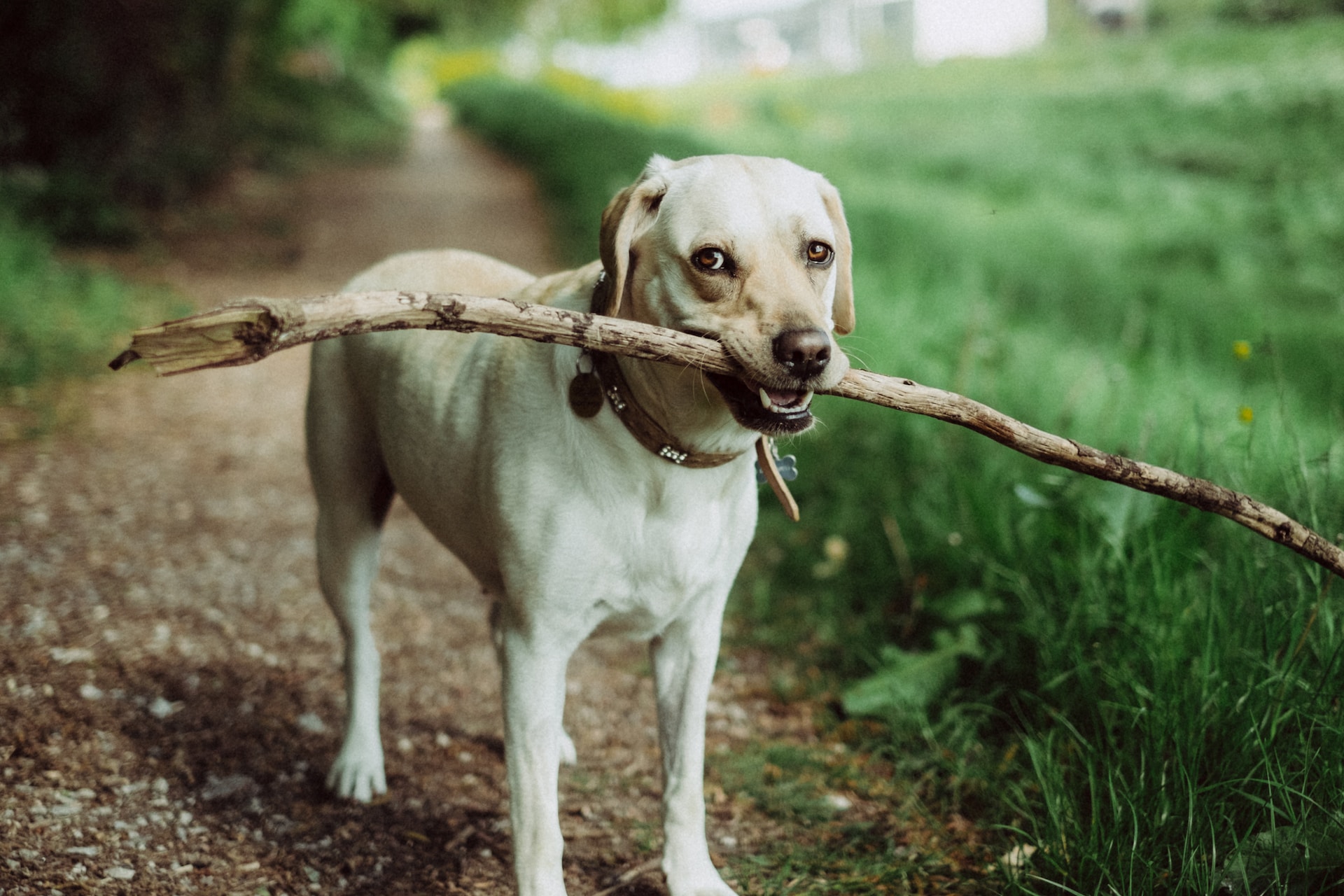If you’re struggling with your Labrador’s play biting behavior, I’m here to help you put an end to it. Play biting is a common issue among puppies and young dogs, but it’s important to address it early on to prevent it from becoming a habit. In this article, I’ll share some effective strategies that will teach your Labrador to control their biting instincts and engage in appropriate play.
One approach is redirecting your dog’s attention when they start play biting. Keep some interactive toys or chew bones handy and offer them as an alternative whenever your Labrador starts nipping at you or others. By providing them with a suitable item to bite on, you redirect their focus and give them an appropriate outlet for their energy.
Why Dogs Engage in Play Biting
Play biting is a common behavior among dogs, including Labradors. Understanding why dogs engage in this behavior can help you address it effectively and ensure a harmonious relationship with your furry friend. Here are some reasons why dogs may indulge in play biting:
- Natural Instinct: Dogs are descendants of wolves, and playful nipping or mouthing is a natural part of their socialization process. Puppies often learn bite inhibition from their littermates through gentle play biting. It’s their way of exploring the world around them and testing boundaries.
- Communication: Dogs use various forms of communication to interact with each other and with humans. Play biting can be a way for them to express excitement, initiate play, or get attention from their owners. It’s important to differentiate between playful bites and aggressive behavior.
- Teething: Just like human babies, puppies go through teething stages too! The discomfort caused by emerging teeth can lead them to chew on objects, including hands or feet during playtime. Providing appropriate chew toys can redirect their urge to bite onto more suitable items.
- Lack of Training: If your dog hasn’t been taught proper bite inhibition or if they haven’t received consistent training on acceptable behaviors, play biting may become a habit that persists into adulthood. Training sessions that focus on positive reinforcement techniques can help teach your dog appropriate ways to interact during play.
To address play biting in Labradors, it’s crucial to establish clear boundaries and provide consistent training from an early age. Encourage gentle play by redirecting bites onto appropriate toys and rewarding desired behaviors with treats and praise.

How to Stop Your Dog from Play Biting
As a dog owner, one of the key aspects of responsible pet parenting is setting clear boundaries for your furry friend. This is especially important when it comes to playtime and addressing any unwanted behaviors such as play biting. By teaching your dog appropriate play behavior, redirecting their instincts towards appropriate toys, and establishing a consistent routine for playtime, you can effectively curb their play biting tendencies.
Teaching Your Dog Appropriate Play Behavior
When it comes to playtime with your Labrador or any other breed, it’s crucial to establish what constitutes acceptable behavior right from the start. Begin by using positive reinforcement techniques to reward good behavior like gentle playing or chewing on appropriate toys. If your dog starts to display rough or aggressive play biting, immediately stop the interaction and calmly walk away. This sends a clear message that this type of behavior is not tolerated.
Redirecting Play Biting to Appropriate Toys
Another effective way to tackle play biting is by redirecting your dog’s attention to suitable chew toys or interactive puzzles. Keep a variety of toys readily available that are specifically designed for chewing and teething stages. Whenever you notice your Labrador getting too excited or nibbling on hands or clothing during playtime, gently remove yourself from the situation and offer them an appropriate toy instead.
Consistency is Key: Establishing a Routine for Playtime
Creating a structured routine for playtime can greatly contribute to curbing unwanted behaviors like excessive play biting. Dogs thrive when they have predictable schedules, as it provides them with a sense of security and understanding. Designate specific times for play sessions each day, ensuring they are balanced with rest, training, and other activities.
During these designated playtime periods, engage in interactive games such as fetch or tug-of-war using appropriate toys. This not only channels your dog’s energy in a positive way but also reinforces the idea that playing with toys is more rewarding than biting humans.
Remember to always supervise your dog during playtime and intervene immediately if their play biting becomes too rough or aggressive. Consistency in reinforcing boundaries and redirecting their behavior will help shape their understanding of acceptable play habits over time.
Setting clear boundaries for your dog is an ongoing process that requires patience, consistency, and positive reinforcement. By teaching appropriate play behavior, redirecting play biting to appropriate toys, and establishing a routine for playtime, you can foster a healthy relationship where both you and your Labrador can enjoy fun-filled interactions without the worry of excessive biting.